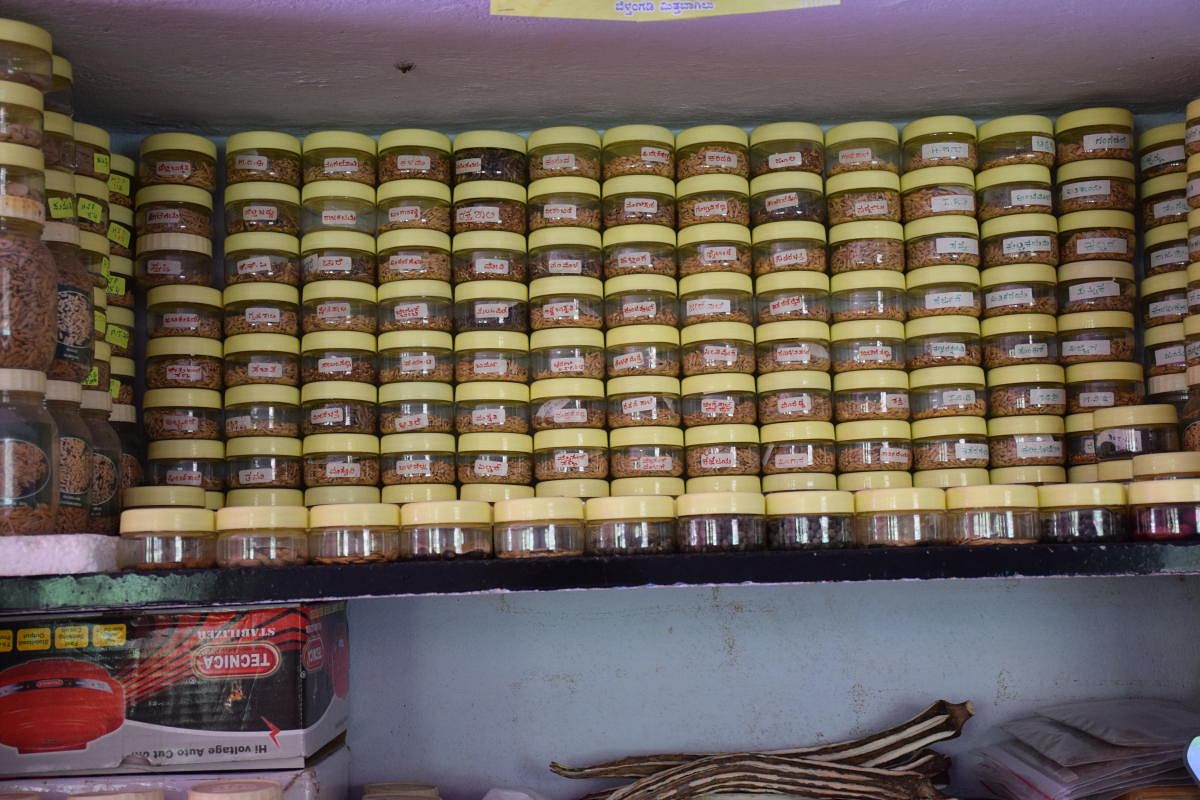
Expensive is the word associated with third-party organic certification system. On an average, a farmer having a landholding of up to 50 hectares has to shell out a minimum of Rs 25,000 every year during and after the certification process under the National Programme for Organic Production (NPOP). The certification period is generally three years.
There is no relaxation in fee for small and marginal farmers who constitute a majority of organic growers. Record keeping is another concern. The process involves rigorous documentation, which is an inconvenience for farmers.
And this provides an opportunity for aggregators to ‘help’ farmers through group certification, another mode of authenticating organic food. But no stakeholder seems to be content with this approach. “It is useful for smallholders as it is cost-
effective. However, there are concerns about the dependability of the internal control system where the periodic inspection is done by an identified organisation. There are instances of these units compromising with the process and later misusing the certificate. Many a time, the farmer may not even be aware of the process. As a result, a certification agency might end up certifying a wrong farmer and produce,” said Narayana Upadhyaya of Aditi Organics, one of the 29 certification agencies recognised by the Agricultural and Processed Food Products Export Development Authority.
Shortage of seeds
The use of non-organic seeds that are not chemically treated is considered for certification due to the shortage of organic seeds.
“Even if farmers treat seeds with organic preparations, chemical residues may remain. Similarly, some of the aggregators and organisations prescribe fertilisers and other inputs labelled as ‘organic’, but ‘organic’ is not a protected word in the country,” he told DH.
Organic farmers, buyers unite to avoid middlemen
The credibility of the product depends on the certification agency too. Many a time, agencies do a random survey before certifying them. Anandatheertha Pyati, a farmer in Koppal district, described how 96 farmers in a village were declared organic after evaluating only six of them. Such instances question the credibility of villages declared as organic under the state government’s organic scheme.
And then, there are several instances of aggregators misusing the transaction certificate to make profits. This certificate provides complete tracking and traceability of certified products.
This explains why food business operators feel certification is not foolproof. “Recently, we found traces of chemical residues in the production of a certified grower,” said Somesh B, chief executive officer of Sahaja Organics, a farmer-producer
company.
What is organic?
With the entry of big companies, the picture of organic farming has changed. Big companies may be procuring the produce from farmers who practice non-chemical farming. And sometimes they may not. “But is organic farming only about not using chemicals, can we consider a person doing monocropping without using chemicals an organic farmer?” asks Kavitha Kuruganti of the Alliance for Sustainable and Holistic Agriculture.
She also points out that there is a conflict of interest in the revenue model of certification agencies. They can generate income only if they bring more and more farmers under the certification system.
Santosh Koulagi, an organic farming pioneer, is apprehensive about the procedure of the certification system and the qualification of the supervisors. “It is mostly about record keeping and there is no analysis. A couple of years ago, our farm in Melukote was considered for group certification by an organisation which was into organic trade. Supervisors mostly used to get the details from us and check the records that we had maintained. Even though they visited the farm once in a while, they were not able to comprehend the various aspects of organic farming,” he said.
Aditi Organics is developing software to maintain the real-time data of farms, which Narayana Upadhyaya believes will ease farmers of record keeping and reduce the chances of malpractice.
Chaya, a farmer in Koppal, suggested another solution, “Contamination can happen at any stage of cultivation, processing and transportation, and farmers may not even be aware of this. Our scientists should develop a kit to test products for chemical residues just like the lactometer that checks adulteration in milk. It should be affordable and accessible.”
Prioritise research
N Devakumar, dean, Agriculture College, Hassan, is known for his organic research initiatives. He feels that institutes need to lay more stress on organic research to strengthen the movement. “It is still in the infant stage and yet to evolve as a separate faculty.”
Considering the complexity of NPOP, The central government launched the Participatory Guarantee System (PGS-India) in 2015. Producers under this cost-effective, peer-review system can cater only to the domestic market. While activists appreciate this system, they feel PGS requires some kind of third-party evaluation to ensure credibility.
However, Kavitha said that the two certification regimes are unsuitable or unaffordable for a majority of farmers.
Then there are pioneers who have become synonymous with organic farming. They don’t need a certification system to validate their crops. After all, integrity and trust are fundamental to organic farming movement’s success.